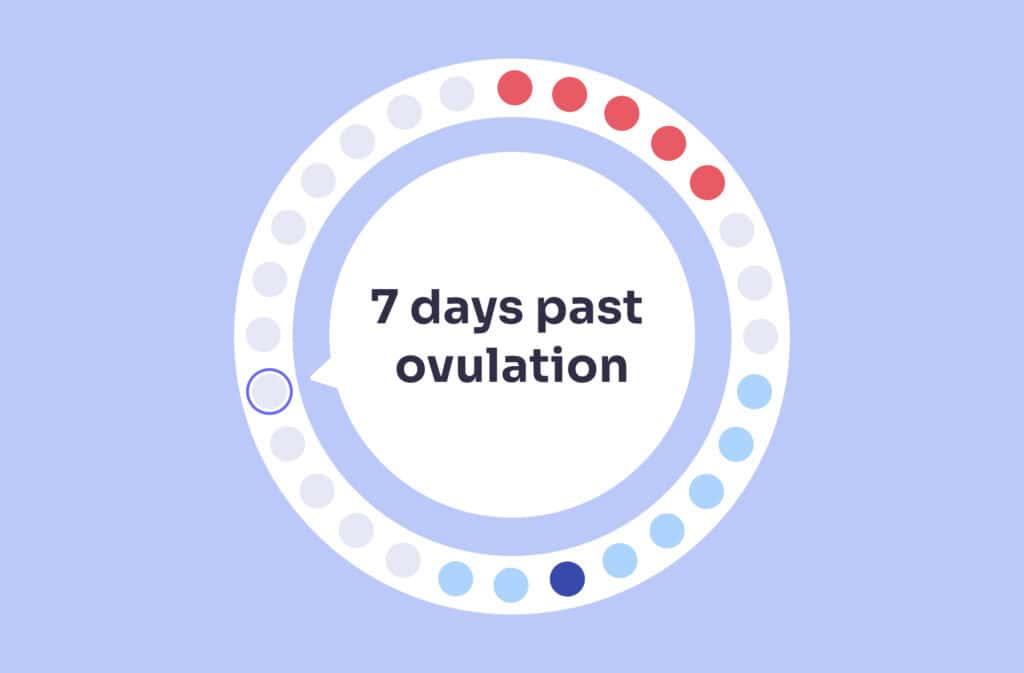Femia > Health Library > Pregnancy > Pregnancy health > Can you take antidepressants while pregnant? Risks, benefits, and safe options
Can you take antidepressants while pregnant? Risks, benefits, and safe options

- Updated Feb 11, 2025
- Published
CRAFTED BY HUMAN
Crafted by human At Femia, we provide accurate and up-to-date information at every stage of your journey, from trying to conceive, pregnancy and postnatal support. All content is created by a real person based on in-depth research and own professional experience. Femia ensures that you will receive expert advice, strict accuracy and a personalized approach from our authors/medical experts. Learn more about our editorial policy.
FACT CHECKED
Fact checked At Femia Health, we maintain the highest standards of editorial excellence in delivering content focused on helping you conceive, guiding you through pregnancy, and supporting you postpartum. Explore our content review principles to learn how we ensure the accuracy and quality of our health and lifestyle tips for every stage of your journey.

Created with Hector Chapa, MD, FACOG, Clinical associate professor, Obstetrics and Gynecology Texas A&M University, College of Medicine in Bryan-College Station, USA
Some antidepressants and anxiety medications are considered safe for pregnancy and are not associated with serious long-term risks. Zoloft is often prescribed as the safest antidepressant in pregnancy, though there are some other safe options:
- SSRIs: Lexapro, Prozac
- SNRIs: Effexor
- Atypical antidepressants: Wellbutrin
Since excess stress can be damaging both to mothers-to-be and their babies, managing mental health during pregnancy is pivotal, though it always requires the individual consideration and guidance of a healthcare provider to weigh all potential risks.
Though it can be a very awaited and wonderful period in life, pregnancy can also bring significant emotional challenges. A combination of physical, hormonal, and social changes that take place in your life during pregnancy can create emotional strain, which may lead to mental challenges like anxiety or depression. These can leave a lasting impression on both a mother and a child. But, can you take antidepressants while pregnant to address them?
In this article, we’ll tell you about the benefits and risks of taking antidepressants while pregnant. We’ll also suggest the safest medicines and additional tips for managing depression in pregnancy effectively.
Femia offers a personalized meal plan, symptom tracking,
and more according to your pregnancy journey
Can you take antidepressants while pregnant?
Being one of the most common mental health problems, depression affects roughly 20% of females throughout their lifetime. Yet, though it can appear at any time, pregnancy is known as a period of special vulnerability, during which the prevalence of depression ranges between 4% and 20%. Hence, the topic of antidepressant usage in pregnancy is quite well-researched.
So, can you take antidepressants while pregnant? The short answer is “yes.” However, it’s important to note that some antidepressants are generally considered safer for pregnant women than others.
Also, it’s important to consider individual circumstances, such as the severity of depression, medical history, and others. Due to these reasons, it’s crucial to consult with a healthcare provider to receive personalized advice.
👉Find out more: Which food can cause miscarriage: A comprehensive guide
Why treating depression and anxiety during pregnancy is important
When not treated properly, depression or anxiety can bring many negative effects both for maternal and fetal health. When a pregnant woman is not doing well mentally, she is less likely to receive proper prenatal care. Severe depression or anxiety can lead to unhealthy or dangerous behaviors in females, including substance use and smoking, which can damage the health of a mother-to-be and her fetus alike. Besides, if depression and anxiety are not treated, there is a higher risk of having postpartum depression.
Untreated depression also reflects on a child. It can cause higher levels of cortisol in a fetus and increase the risks of depression, anxiety, and behavioral disorders developed later in life. Other risks include:
- Low birth weight
- Developmental delays
- Preterm birth
What antidepressants can you take while pregnant?
There are several groups of antidepressants that might be prescribed during pregnancy:
Selective Serotonin Reuptake Inhibitors
Known as SSRIs, this group of antidepressants affects neurotransmitters. They are known for regulating mood, emotions, and sleep. SSRIs work by blocking reuptake and letting more serotonin pass further messages between nearby nerve cells.
Generally, SSRIs are considered relatively safe for pregnant women. Some potential risks include increased blood pressure in the mother and premature birth. However, the risks are small, and women prescribed SSRIs typically stay under the supervision of a healthcare provider to detect and address any side effects that might be there.
Some SSRIs that can be used in pregnancy include:
- Zoloft (sertraline). Most studies haven’t revealed an increased risk of birth defects caused by this medication. Hence, Zoloft and pregnancy are considered to go rather well together.
- Lexapro (escitalopram). Lexapro and pregnancy are also a common combination. Yet, some studies suggest that this medication may have a small risk of heart development issues in a baby. Thus, it may be used with caution.
- Prozac (fluoxetine). Prozac is another option for pregnancy that’s considered safe. Unfortunately, there are limited studies on its safety. Also, it’s known that this medication can create some risks in late pregnancy. So, can you take Prozac while pregnant? It’s not unrecommended but should be addressed individually.
Serotonin-Norepinephrine Reuptake Inhibitors
This group of antidepressants is widely known as SNRIs. They work by stopping or delaying the reabsorption of serotonin and norepinephrine in the brain, thus, raising their levels and helping treat depression.
For use during pregnancy, healthcare providers mainly prescribe Effexor (venlafaxine) from this group of antidepressants, because the available studies suggest its relative safety for maternal and fetal health. So, can you take Effexor while pregnant? The answer is likely “yes,” though it requires individual considerations before starting intake.
Other medications from this group, such as duloxetine, don’t have enough studies to establish their safety during pregnancy and breastfeeding.
Atypical antidepressants
This group of antidepressants spans all medications used to treat depression that work differently than most other antidepressants. They work by affecting the chemical messengers (neurotransmitters) responsible for transmitting messages between brain cells. They can affect the levels of one or several chemical messengers, including serotonin, norepinephrine, or dopamine.
Although the list of approved atypical antidepressants is rather long, Wellbutrin (bupropion) is the most commonly prescribed one. So, can you take Wellbutrin while pregnant? Generally, yes. This medication may be considered if SSRIs aren’t effective. There is no evidence that this medication causes enhanced risks of miscarriage or other severe side effects. However, there is some evidence that taking bupropion in the first trimester can slightly increase the risk of cardiovascular defects.
Risks of antidepressants during pregnancy
Antidepressants, even when considered safe, may carry a few risks during pregnancy:
- Birth defects, such as premature birth or low birth weight, are sometimes associated with some SSRIs.
- A slightly increased risk of cardiac malformations and cardiovascular issues, especially when antidepressants are taken during the first trimester.
- Short-term withdrawal symptoms in newborns (neonatal adaptation syndrome) can manifest with jitters, irritable behavior, poor feeding, or respiratory distress caused by quitting the medicine.
Though these risks might exist, the likelihood of them is very low. Studies show minimal side effects of commonly used medications.
How will I know if my baby is affected by my medication?
Taking antidepressants in pregnancy should always be done under the guidance and supervision of a healthcare provider. That is, if you are prescribed such medicines, your doctor will monitor the baby’s development and health closely, so it shouldn’t be a concern.
Femia offers a personalized meal plan, symptom tracking,
and more according to your pregnancy journey
Can you take anxiety meds while pregnant?
Depression and anxiety aren’t the same. The first one is typically associated with a deep feeling of sadness and despair, whereas the latter is mostly linked to excessive fear and worry. Nevertheless, both of these conditions frequently affect pregnant women. Moreover, they can occur together, which is why it’s absolutely natural to wonder, can you take anxiety meds while pregnant?
The good news though is that these two conditions have similar treatments. Often, SSRIs are the first-line treatment. Yet, one thing you need to know about anxiety meds is that some of them, such as benzodiazepines, should be avoided unless absolutely necessary. This medication is associated with low birth weight, preterm delivery, hypotonia, withdrawal, and depression.
List of anxiety medications safe during pregnancy
Typically, there are two categories of safe anxiety meds commonly prescribed to pregnant women:
- SSRIs: Zoloft, Lexapro, or Citalopram
- SNRIs: Cymbalta, Effexor, or Pristiq
These represent the safest options with minimal risks and side effects. Nevertheless, they all should be taken under medical supervision.
👉Find out more: Your pregnancy checklist: Week-by-week guide to preparing for baby
How to manage depression and anxiety safely during pregnancy
While non-medical depression management techniques like cognitive behavioral therapy or EMDR may not replace medication in severe cases, they can help refine balance and improve treatment outcomes. Here are some safe ways to maintain mental well-being while pregnant:
- Work closely with your healthcare provider to monitor your condition, find treatment options, and weigh the benefits and risks of medications.
- Build a support network with your family, friends, and specialists to discuss your concerns and receive support. You can also consider joining therapy or support groups.
- Engage in relaxation techniques, such as meditation, yoga, breathing, and mindfulness to feel better.
- Focus on health and self-care. Stay active with low-impact exercises, eat healthy and balanced meals, and create self-care rituals to feel safe and relaxed.
- Spend time preparing for your baby and deepen your knowledge about fetal growth and pregnancy milestones. This can help you feel better prepared and reduce anxiety.
When to consult your doctor
If you were taking antidepressants before finding out you’re pregnant, it’s crucial to see your doctor before stopping their intake. Remember that a sudden cessation of antidepressant intake can result in worsening symptoms.
If you haven’t taken antidepressants before but are experiencing severe depression or anxiety during pregnancy, you should also seek professional guidance to assess your case and find effective and safe management options.
Questions from the Femia community
Can I stop taking my antidepressants when I find out I’m pregnant?
If you’ve been taking antidepressants before pregnancy, a sudden cessation of their intake can lead to symptoms worsening and various negative impacts. Hence, instead of stopping, it’s recommended to see your doctor first and ask them, for example, can you take Prozac while pregnant, or can you take Bupropion while pregnant? A healthcare provider will consult you on available options and their safety.
Can I breastfeed while taking antidepressants?
Yes, most of the approved and commonly used antidepressants are considered safe while breastfeeding. Though some meds can pass into breast milk, most of them are shown to have little to no effect on milk supply or baby’s health. Yet, it’s crucial to discuss the options with your doctor.
Are there natural alternatives to antidepressants during pregnancy?
There are different management techniques, such as mindfulness, meditation, therapy, and lifestyle adjustments that can help support mental well-being in pregnant women. However, while these techniques can improve symptoms, they may not replace medication for severe depression cases.
The bottom line
Depression and anxiety are incredibly common in today’s world, and pregnancy is considered a vulnerable period, when females are more prone to develop these conditions or experience worsening symptoms. This fact can cause quite a lot of concerns for women who are pregnant or preparing for pregnancy.
Can you take Zoloft while pregnant? Is Lexapro safe during pregnancy? What are the possible risks of taking or not taking antidepressants? All these questions can distress mothers-to-be. However, the truth is that balancing mental well-being in pregnancy is pivotal both for maternal and fetal health.
As you now know, treating anxiety and depression is crucial in pregnancy. Some antidepressants, such as Zoloft, are considered generally safe with no or minimal side effects. Others, however, may carry mild risks. So, at the end of the day, it’s important to consult a healthcare provider about any potential risks and take antidepressants under their supervision. It’s also important not to quit medications you were taking before pregnancy without talking with your doctor.
References
- Ajinkya S, Jadhav PR, Srivastava NN. “Depression during pregnancy: Prevalence and obstetric risk factors among pregnant women attending a tertiary care hospital in Navi Mumbai.” Ind Psychiatry J, Jan. 2013. https://pmc.ncbi.nlm.nih.gov/articles/PMC3895310/#:~:text=Depression%20affects%20about%2020%25%20of,from%204%25%20to%2020%25.
- Lauren M. Osborne. “Antidepressants and Pregnancy: Tips from an Expert.” Johns Hopkins Medicine. https://www.hopkinsmedicine.org/health/wellness-and-prevention/antidepressants-and-pregnancy-tips-from-an-expert#:~:text=“Untreated%20depression%20may%20increase%20preterm,behavioral%20disorders%20later%20in%20life.”
- “Overview – Selective serotonin reuptake inhibitors (SSRIs).” The National Health Service (NHS), 8, Dec. 2021. https://www.nhs.uk/mental-health/talking-therapies-medicine-treatments/medicines-and-psychiatry/ssri-antidepressants/overview/#:~:text=After%20carrying%20a%20message%2C%20serotonin,messages%20between%20nearby%20nerve%20cells.
- “Sertraline (Zoloft®).” Mother To Baby | Fact Sheets [Internet]. Brentwood, Aug. 2023. https://www.ncbi.nlm.nih.gov/books/NBK582954/.
- “Pregnancy, breastfeeding and fertility while taking escitalopram.” The National Health Service (NHS), 24, Feb. 2022. https://www.nhs.uk/medicines/escitalopram/pregnancy-breastfeeding-and-fertility-while-taking-escitalopram/#:~:text=Escitalopram%20and%20pregnancy,will%20have%20a%20normal%20heart.
- Bellantuono C, Vargas M, Mandarelli G, Nardi B, Martini MG. “The safety of serotonin-noradrenaline reuptake inhibitors (SNRIs) in pregnancy and breastfeeding: a comprehensive review.” Hum Psychopharmacol, May, 2015. https://pubmed.ncbi.nlm.nih.gov/25784291/.
- “Atypical antidepressants.” Mayo Clinic, 4, Oct. 2019. https://www.mayoclinic.org/diseases-conditions/depression/in-depth/atypical-antidepressants/art-20048208.
- Hendrick V, Suri R, Gitlin MJ, Ortiz-Portillo E. “Bupropion Use During Pregnancy: A Systematic Review.” Prim Care Companion CNS Disord, 21, Sep. 2017. https://pubmed.ncbi.nlm.nih.gov/28973846/.
- Payne JL, Meltzer-Brody S. “Antidepressant use during pregnancy: current controversies and treatment strategies.” Clin Obstet Gynecol, Sep. 2009. https://pmc.ncbi.nlm.nih.gov/articles/PMC2749677/.
- Shyken JM, Babbar S, Babbar S, Forinash A. “Benzodiazepines in Pregnancy.” Clin Obstet Gynecol, Mar. 2019. https://pubmed.ncbi.nlm.nih.gov/30628916/#:~:text=Use%20of%20both%20benzodiazepine%20anxiolytics,if%20any%2C%20are%20poorly%20understood.
- “Postpartum Depression.” U.S. Centers for Disease Control and Prevention, 5, Apr. 2024. https://www.cdc.gov/breastfeeding-special-circumstances/hcp/illnesses-conditions/postpartum-depression.html#:~:text=Antidepressants%20while%20breastfeeding,supply%20or%20infant%20well%2Dbeing.
- Yonkers KA, Blackwell KA, Glover J, Forray A. “Antidepressant use in pregnant and postpartum women.” Annu Rev Clin Psychol, 2014. https://pmc.ncbi.nlm.nih.gov/articles/PMC4138492/.

Find out how quickly you will ovulate if you have already stopped taking oral contraceptives and what can affect you greatly while waiting for a fertile window.

When is it safe to orgasm after giving birth? Discover the optimal timeline and general guidelines for resuming sexual activity after delivery.

Explore possible symptoms at 7 days past ovulation (7 DPO), including mild cramping and cervical mucus changes. Understand when a pregnancy test may be accurate. Expert advice from Femia.
